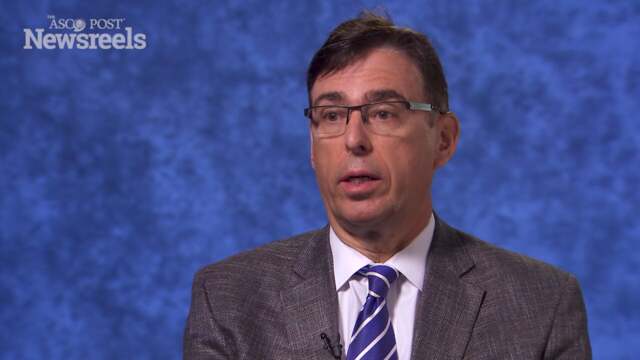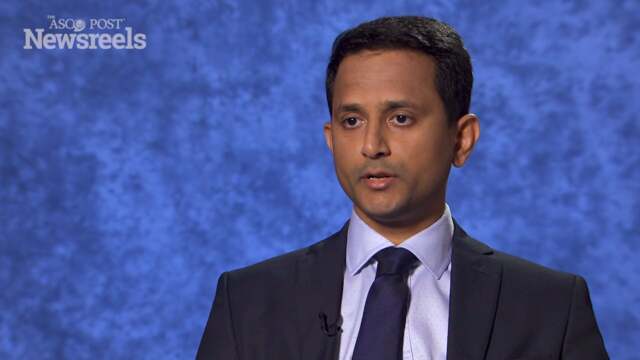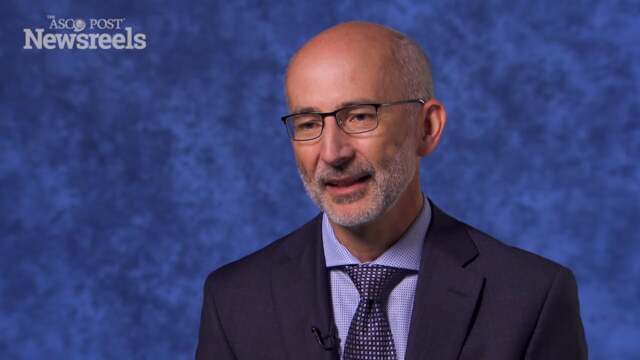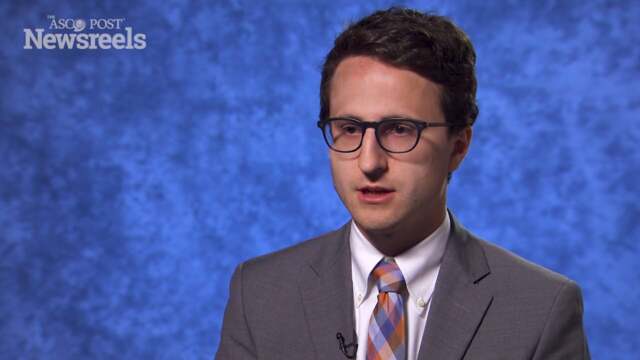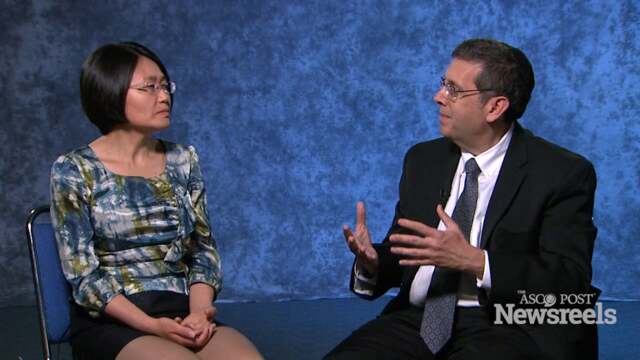Bhishamjit S. Chera, MD, on Oropharyngeal Squamous Cell Carcinoma and HPV-16: Expert Perspective
2017 ASTRO Annual Meeting
Bhishamjit S. Chera, MD, of the University of North Carolina, discusses quantification of human papillomavirus 16 in circulating tumor DNA during de-intensified chemoradiation therapy for favorable-risk HPV-associated oropharyngeal squamous cell carcinoma (Presentation 92).
Marcus E. Randall, MD, of the University of Kentucky, discusses phase III study findings on pelvic radiation therapy vs vaginal cuff brachytherapy followed by paclitaxel/carboplatin chemotherapy in patients with high-risk, early stage endometrial cancer (Abstract LBA1).
Shrinivas Rathod, MD, of the University of Manitoba, discusses phase III study results on optimization of treatment of advanced non–small cell lung cancer using radiation therapy and chemotherapy (Abstract 223).
Gerard Morton, MD, of Sunnybrook Odette Cancer Centre, summarizes a session that included discussion of late toxicities of radiotherapy for locally recurrent prostate cancer; using chemotherapy instead of radiation in early-stage seminoma; radiotherapy vs surgery plus radiotherapy in Gleason score 9–10 prostate cancer; and an analysis of the IROCK study on kidney cancer (Abstracts 1, 1089, 282, 330).
James E. Bates, MD, of the University of Florida, discusses a volumetric dose-effect analysis of late cardiotoxicity, results from the Childhood Cancer Survivor Study (Abstract 4).
Shulian Wang, MD, of the National Cancer Center in Beijing, and Benjamin Movsas, MD, of the Henry Ford Health System, discuss study results on the use of hypofractionated radiation therapy after mastectomy for the treatment of high-risk breast cancer (Abstract PL01).
